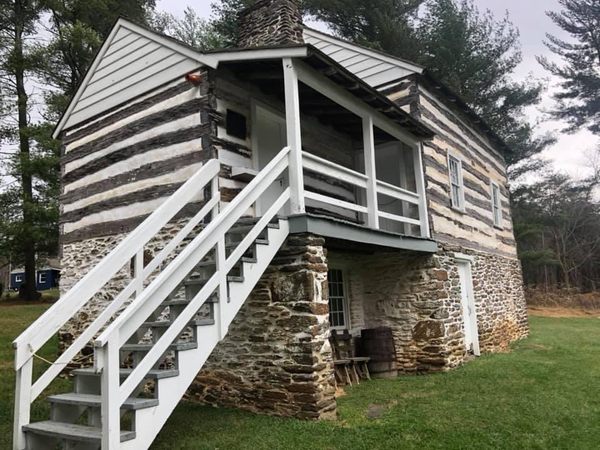In the summer of 1859, John Brown rented this small cabin and farm as a barracks, training ground, short-lived antiracist utopia, and launching point for his fateful raid on Harpers Ferry.
Using the alias of Isaac Smith, Brown claimed interest in establishing a mining operation locally to cover the shipments of 200 Sharps carbine rifles, hundreds of Colt revolvers and 950 iron pikes that would arm the Second American Revolution that he envisioned would follow the action at Harpers Ferry.
Soon after his arrival, Brown sent for his daughter Annie and daughter-in-law Martha, who traveled from the family homestead in the Adirondacks to create an illusion of normal domestic life. The teenage girls maintained the household and ran interference to deal with nosy neighbors as Brown’s men would scramble into the attic to conceal the company of 22 men building there. The five Black raiders had to take extreme care never to be spotted by neighbors outside the three-room cabin.
At around 8 p.m. on October 16, 1859, Brown read passages from the Bible, said a word of prayer, admonished his men to only use their weapons in self-defense, and then said “Gentlemen, on your arms. We will proceed to the Ferry.” With Brown on his wagon, the men marched off in pairs into the misty night and immortality.
In 1950, the property was purchased by the International Benevolent and Protective Order of Elks of the World, better known as “the Black Elks,” an African-American social fraternity created to parallel the Elks, which Black men were prohibited from joining due to racist policies. The Black Elks planned to maintain the cabin as a shrine to Brown and his men, and out back they built a one-story cinderblock hall dubbed their National Shrine, where they would hold their most important annual events.
Soon, the hall would be rented out on weekends to a local concert promoter with connections to the “Chitlin Circuit” scene of early Soul & R&B music. In the 50s and early 60s, icons of Black American Music such as James Brown, Tina Turner, Ray Charles, Aretha Franklin, and the Isley Brothers would cut their teeth playing at “John Brown’s Farm.”

